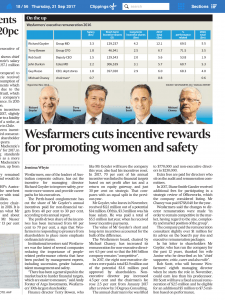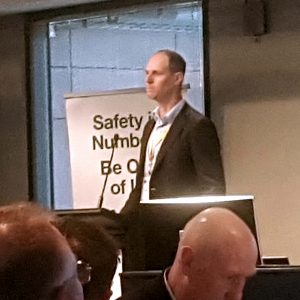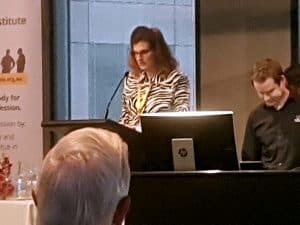 This month the “Future of Leadership” conferences are travelling Australia. The Melbourne stop, on 21 September, started really well with three on-topic speakers but declined strongly after morning tea with at least one speaker who had nothing to say about leadership. At the half-time break, one hopes that the conference gets back on track because when it was, it was very good.
This month the “Future of Leadership” conferences are travelling Australia. The Melbourne stop, on 21 September, started really well with three on-topic speakers but declined strongly after morning tea with at least one speaker who had nothing to say about leadership. At the half-time break, one hopes that the conference gets back on track because when it was, it was very good.
This leadership conference is very different from occupational health and safety (OHS) conference because it talks about a concept in such general terms that the audience can impose whatever context it chooses. As this blog is about workplace safety, predominantly, OHS context was paramount.

 Today’s issue of the Australian Financial Review (AFR) contained an article that shows that the trend for companies and boards embracing their occupational health and safety (OHS) obligations is not uniform. The article “W
Today’s issue of the Australian Financial Review (AFR) contained an article that shows that the trend for companies and boards embracing their occupational health and safety (OHS) obligations is not uniform. The article “W
 Every safety conference needs a
Every safety conference needs a  In front of thousands of delegates and dignitaries, the 21st World Congress on Safety and Health was officially opened yesterday by the Singapore Prime Minister
In front of thousands of delegates and dignitaries, the 21st World Congress on Safety and Health was officially opened yesterday by the Singapore Prime Minister  WorkSafe Victoria’s Executive Director, Health and Safety ,
WorkSafe Victoria’s Executive Director, Health and Safety ,